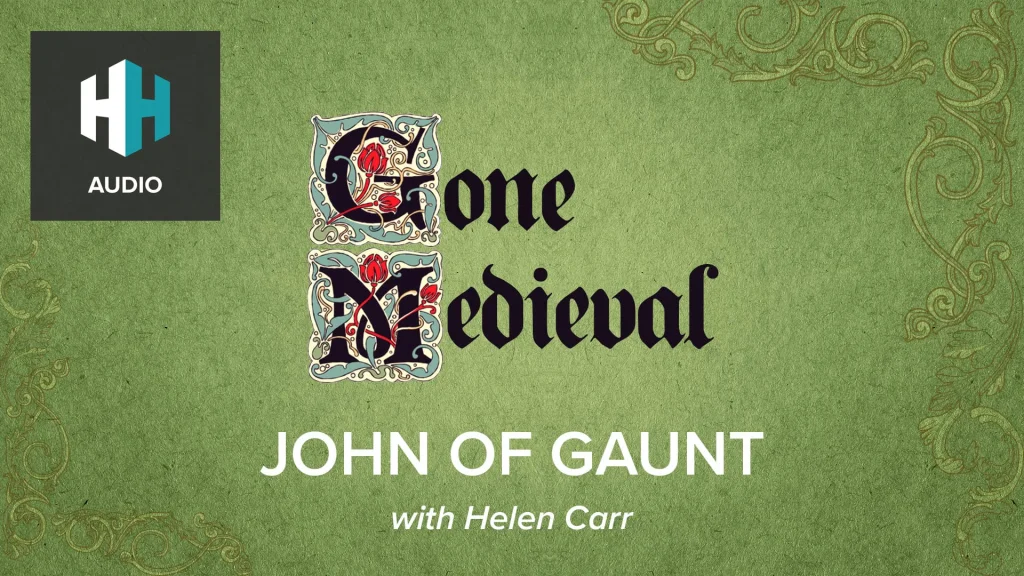The youngest of Henry Plantagenet’s five (legitimate) sons, John was never even expected to inherit land, let alone become king of his father’s empire. His English subjects no doubt wished these initial expectations had been fulfilled: John proved such a poor and unpopular king that he won himself the moniker of “Bad King John“. Here are 10 facts about him:
1. He was also known as John Lackland
John was given this nickname by his father, Henry II, of all people! It was a reference to the fact that he was unlikely to ever inherit substantial lands.
2. His brother was Richard the Lionheart

Richard proved remarkably forgiving of his brother.
They didn’t get on though. When King Richard was captured and held for ransom on his way back from fighting the Third Crusade, John even negotiated with his brother’s captors to keep him in prison.
Richard proved remarkably forgiving. Following his release from prison he decided to pardon John rather than punish him, saying: “Think no more of it, John; you are only a child who has had evil counsellors.”
 Watch Now
Watch Now3. John came from a family of backstabbers
Loyalty was not a virtue amongst Henry II’s sons. Richard himself had only won the the English crown in 1189 after revolting against his father.
4. He was implicated in the murder of his own nephew

John is rumoured to have killed Arthur of Brittany with his own hands.
On his deathbed in 1199, Richard named John his successor. But the English barons had another man in mind – John’s nephew Arthur of Brittany. The barons were eventually won over but Arthur and his claim to the throne didn’t go away.
Facing a rebellion in 1202, John launched a surprise counter-attack, capturing all of the rebels and their leaders – among them Arthur. John was urged by some of his supporters to treat his captives well but it appears he refused. A rumour spread that he had killed his 16-year-old nephew while in a drunken rage and thrown him in the Seine.
5. He was also accused of trying to rape the daughter of one of his barons
The well-connected Essex lord Robert Fitzwalter accused John of attempting to rape his daughter, Matilda, and made death threats against the king. Fitzwalter later led a group of discontented barons in an uprising against John, which resulted in the peace agreement known as the Magna Carta.
The character of “Maid Marian” in the tale of Robin Hood has been linked with Matilda – also known as Maud – in several tellings of the story.
6. John even fell out with the pope
 Listen Now
Listen NowAfter trying to force the Church to accept his candidate for the Archbishop of Canterbury (one of his supporters), John so angered Pope Innocent III that the pontiff excommunicated him between 1209 and 1213. They later patched thing up, however, with the pope backing John in his efforts to get out of the Magna Carta in 1215.
7. He lost most of his father’s continental empire
Within five years of John becoming king, the French had taken Normandy, the foundation of his family’s empire. Ten years later, in 1214, John launched a huge campaign to get it back but was badly defeated.
The English barons who had footed the bill for John’s military campaigns were not happy and by the May of the following year a rebellion was in full-swing.
8. John granted the original Magna Carta

John and the barons agreed the charter at Runnymede, a meadow outside London.
Undoubtedly one of the most important documents in history, this 1215 charter agreed to by John and the rebel barons placed limitations on the king’s powers. What is more, for the first time in England it attempted to create a mechanism by which a monarch would be compelled to adhere to such curbs on their power.
The document was reissued several times and by several kings before it stuck but it would go on to serve as the inspiration for both the English Civil War and the American War of Independence.
 Listen Now
Listen Now9. His barons launched an all-out war against him
After first agreeing to the Magna Carta, John later reneged, asking Pope Innocent III to declare it invalid. The pope agreed and the betrayal sparked a civil conflict between the barons and the monarchy that became known as the First Barons’ War. The war went on for two years, stretching beyond John’s death and into the reign of his son, Henry III.
10. He died of dysentery
John may have died during the civil war of his making but it was not on the battlefield. Accounts circulated soon after his death that he had been killed by poisoned ale or fruits but these were most likely fictitious.















